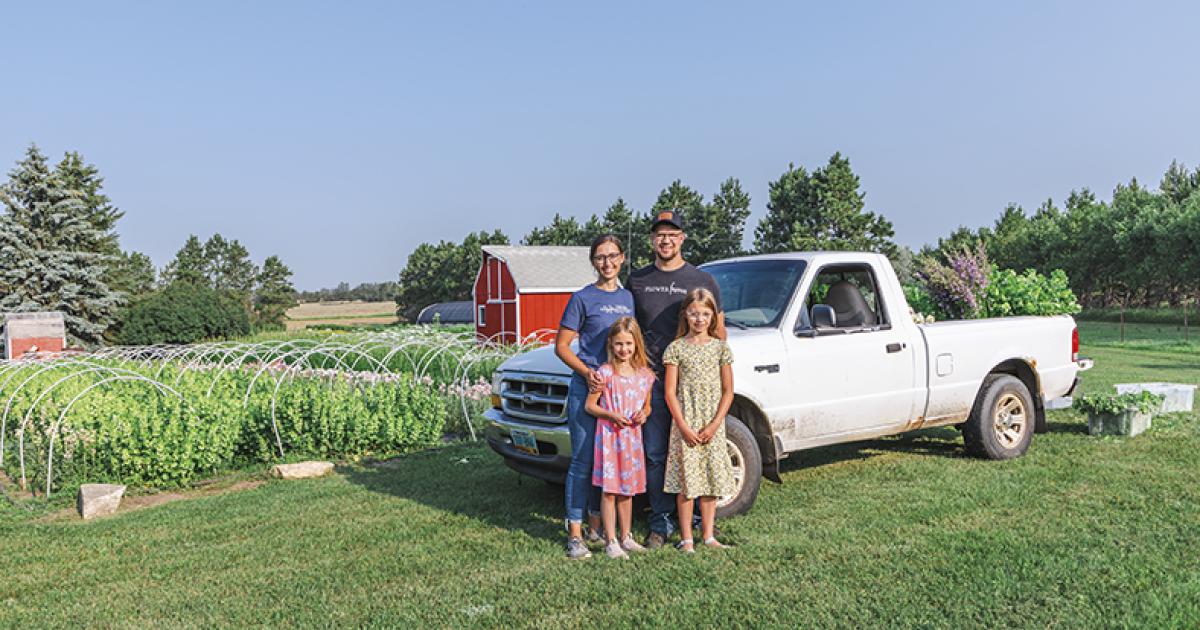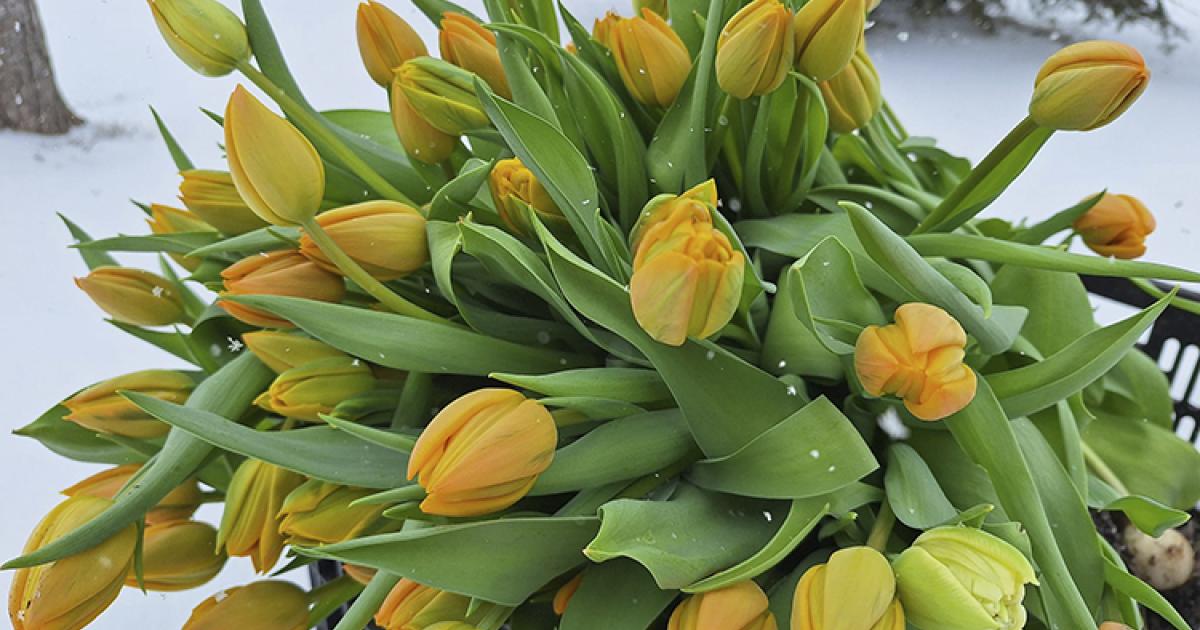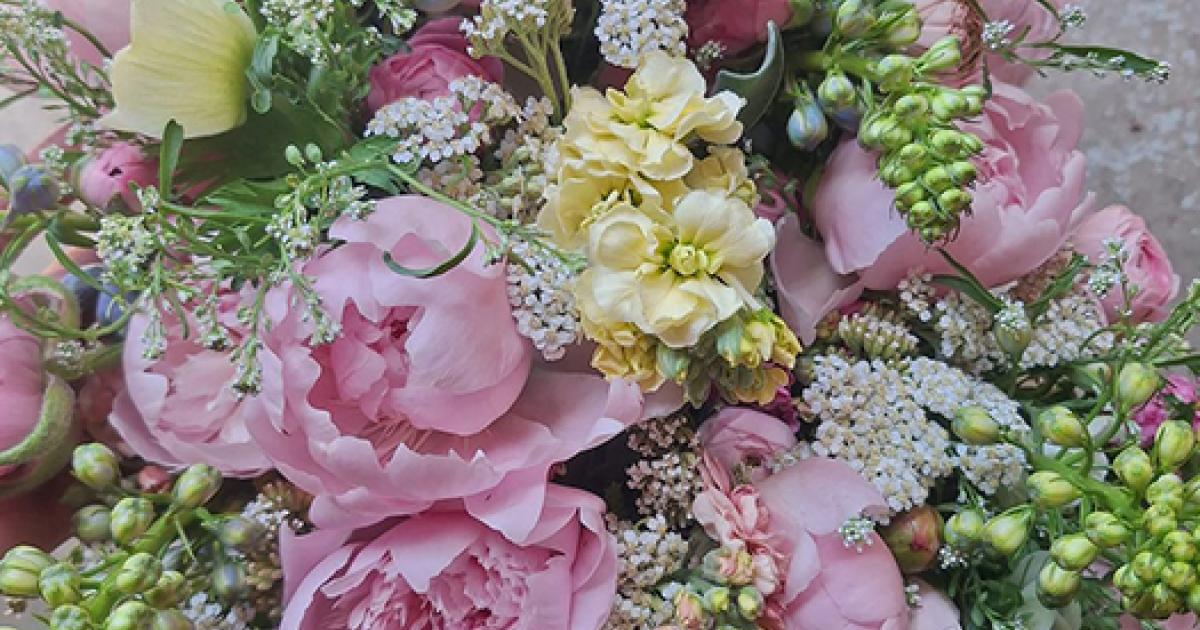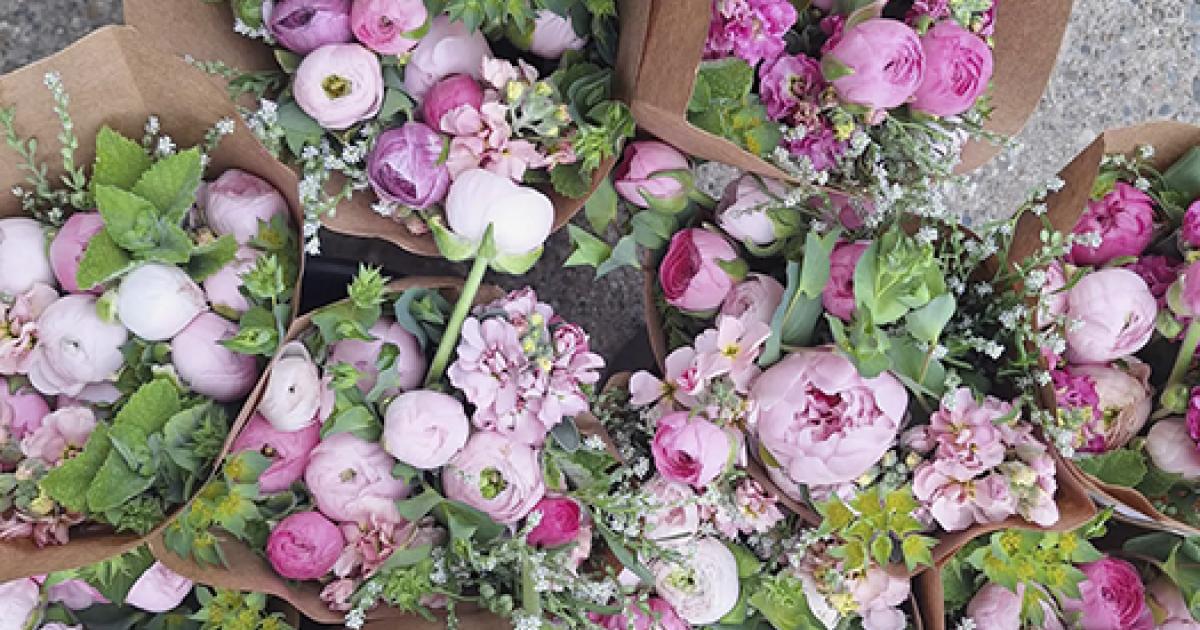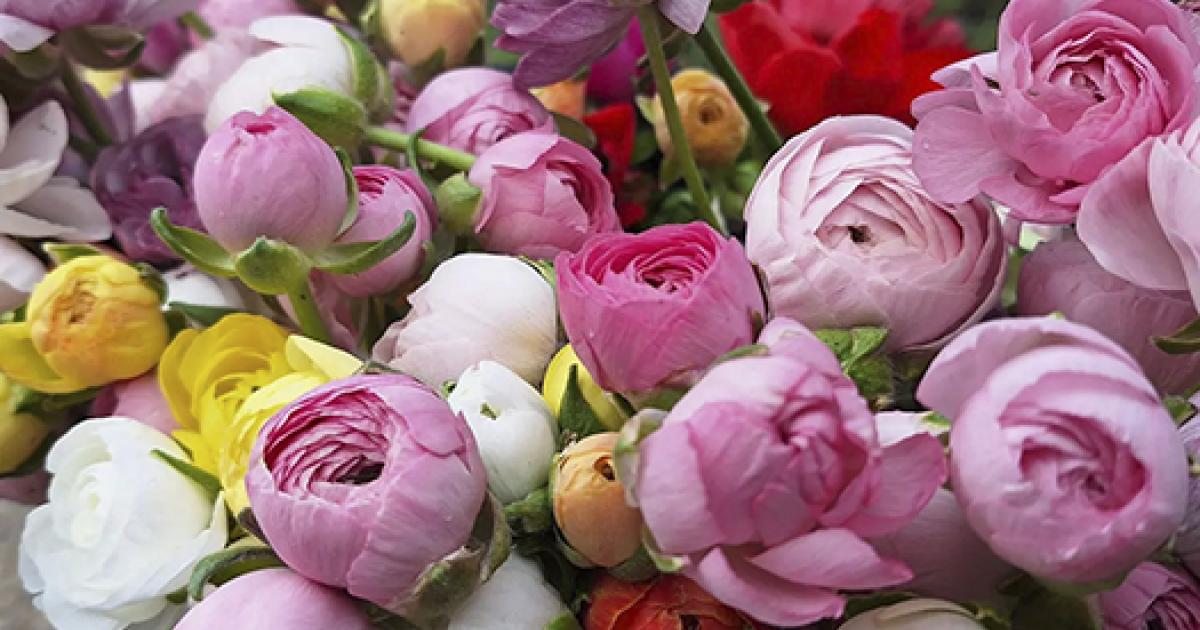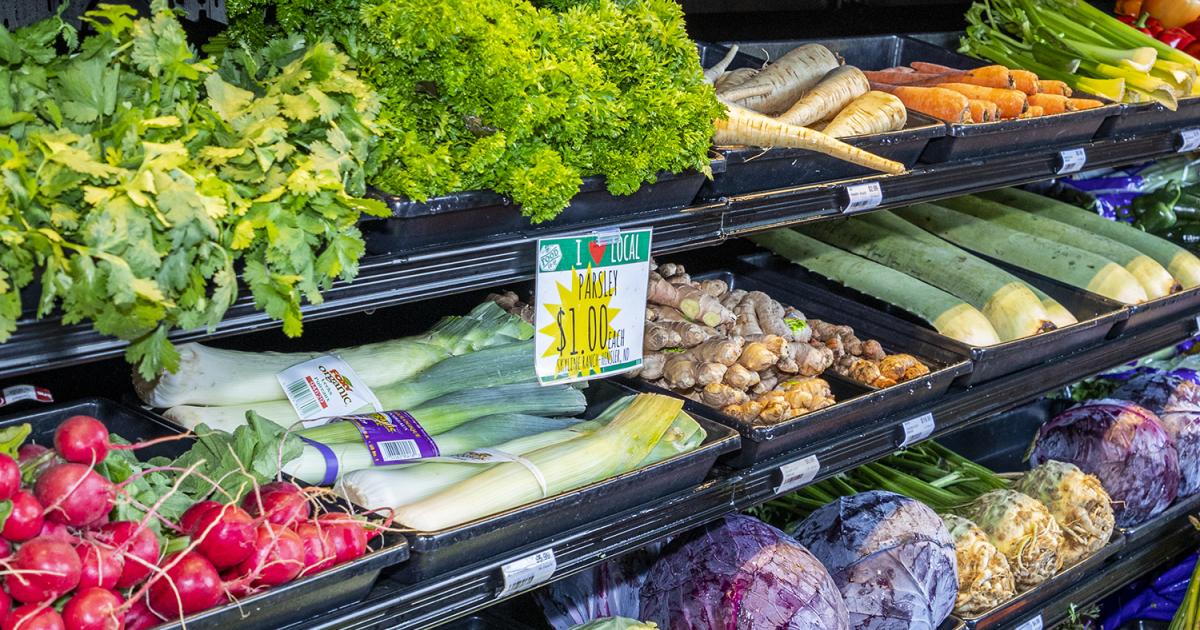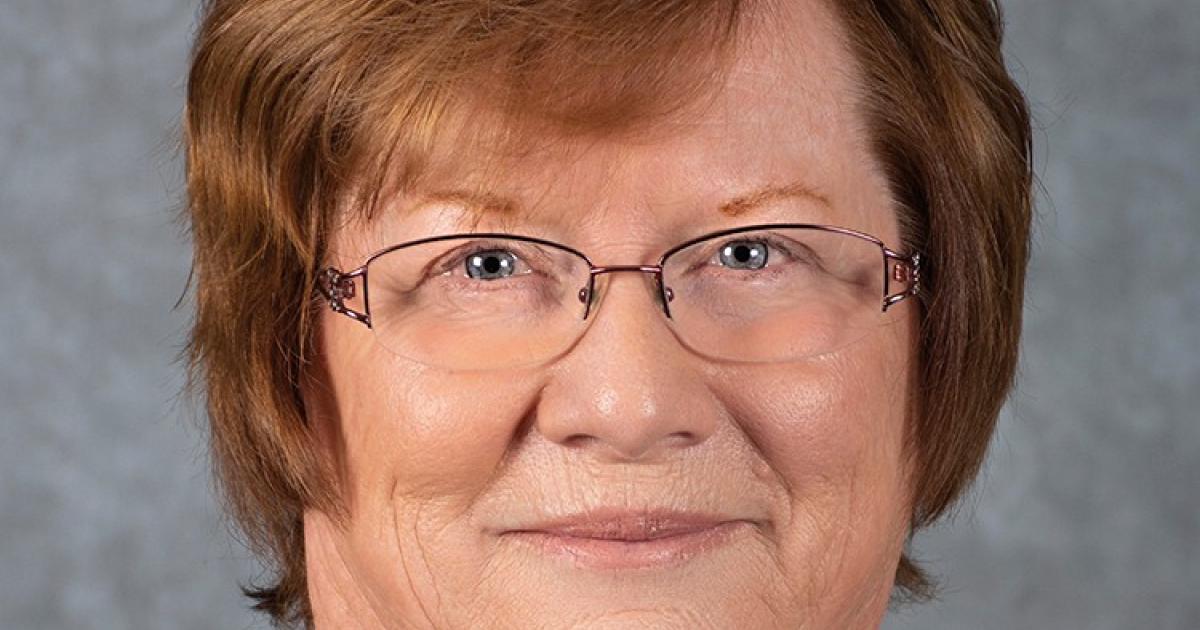Third Day Family Farms: A specialty cut flower farm
Nathan and Theresa Dessonville, with their daughters, Abby and Laura, grow ranunculus, sunflowers, dahlias, lisianthus and snapdragons, along with greenery and other airy and textural elements, to sell as cut flowers through their farm business, Third Day Family Farms. Photo by NDAREC/Liza Kessel
 As the sweet vanilla scent of the Bells of Ireland fills the air and the morning dew settles on the ranunculus blooming among many specialty flowers on their 11-acre farm, the Dessonvilles start each day deeply rooted in the glories of nature.
As the sweet vanilla scent of the Bells of Ireland fills the air and the morning dew settles on the ranunculus blooming among many specialty flowers on their 11-acre farm, the Dessonvilles start each day deeply rooted in the glories of nature.
The family – Nathan, Theresa and their young daughters, Abby and Laura – works together to grow unique and beautiful flowers on their farm, Third Day Family Farms. Their flowers are selectively planted to provide a long vase life for their customers, including subscribers who receive weekly flower bouquets, and bring joy to others.
Igniting the ‘blue flame’
Nathan and Theresa both grew up on farms and experienced the joys and sorrows that came with it. This left them bonded to nature with a desire to raise their children in the same way – at a place that made them feel alive.
The ties for Theresa strengthened even more after reading a book that encouraged her to discover her “blue flame” in life: to share beauty with others through cut flowers. With that intention solidly planted, the Dessonvilles started Third Day Family Farms in Mandan in 2017, with electric power provided by Mor-Gran-Sou Electric Cooperative.
Named for the biblical “third day,” the farm required a huge leap of faith.
“Besides planting annuals in pots and having a small vegetable garden, we didn’t really have any experience in floriculture,” Theresa says. “So, you can imagine the learning experiences we’ve had so far.”
Adding to that learning curve is Nathan’s teaching job (which works well with summers off) and Theresa being a part-time nurse. Despite the knowledge gap and limited time, they persevered, and learned a lot about floriculture through online courses, trial and error and firsthand experiences. They quickly learned about the gaps in the market for delivering super fresh flowers from the field to the customer.
“This is our sixth year of growing cut flowers,” Nathan says. “And every day seems to be a learning experience. Over the years, we’ve certainly learned to find little things that make it faster and more efficient.”
Each day, they rise with the sun to begin harvesting. The cool air and morning dew provide the best conditions for cutting flowers. They then turn those cut flowers into bouquets in the afternoon. Next, it’s on to weeding, washing buckets and catching up on emails before making afternoon deliveries to local shops, farmers markets and customers.
“We’ve also learned that the rhythm of a good, steady and mostly regular routine helps us to persevere through busy or stressful times,” Theresa says.
Sticking to this routine helps them prioritize and allows them to keep enjoying the process, instead of burning out.
“This helps us to have the freedom to find the little joys of any task we are doing,” she adds, which also ignites their blue flame.
Farming flowers
Although North Dakota might not seem like a flower farming place, the Dessonvilles plowed through with passion and made it work.
Over the past six years, they’ve carefully selected flower breeds suitable for North Dakota’s climate. Varieties are hardy, long lasting and seasonal, ensuring the farm can provide subscriptions throughout the year.
Locally grown flowers let you experience the seasons, Theresa says, as you see the shift from spring flowers to summer, then to fall in the different varieties, colors and textures.
“We plan our fields and crops so that we can have a continuous supply of blooms,” Theresa says.
This includes forcing tulips to bloom early in the winter, for a tulip subscription that runs from January to May. In 2024, they grew a whopping 24,000 tulips, while simultaneously planting seeds to begin planning for the flower subscriptions that extend from June to October.
And just like locally grown food, locally grown flowers are a higher quality product.
“Our flowers are not shipped miles and miles. They are delivered within 24 hours after being harvested, and this makes a huge difference in vase life,” Nathan says.
Although they face challenges all farmers do – time, drought, wind and other weather events – the Dessonvilles have learned to embrace it and surrender to something out of their control.
“It’s definitely not easy, and I would be lying if I told you I can sleep through a severe storm, but there is a level of knowing that we’ve done everything in our control to grow these flowers the best we can, and if I walk out in that field and it’s all torn away, so be it,” Theresa says.
In addition to its Porch Petal subscription service, Third Day Family Farms offers “make and take” events, where people visit the farm for garden tours and create their own bouquet to take home. The color-bursting bouquets can also be found at farmers markets, at Balancing Goat Coffee Co. in Mandan, and at other local businesses and events advertised on its Facebook page, 3rd Day Family Farms, and website, www.mandanflowerfarm.com.
The Dessonvilles say their customers tell them delivery day is their favorite day of the week.
A family affair
As the Dessonvilles refine their farming process – Theresa making the bouquets and Nathan in charge of irrigation and repairs – they gather for lunch and dinner as a family each day, surrounded by beautiful blooming fields. They are raising their daughters in the manner they grew up – beginning each day surrounded by nature, working together and seeing the natural cycles of life.
For the Dessonvilles, this lifestyle encourages mindfulness and participation. In the future, they plan to focus on crops, while committing to conservation, stewardship and community. They cherish their relationships with their subscribers and florists and strive to strengthen them as well. All this while working toward their main goal: to spread beauty to the world and create a ripple of joy.
___
Clarice L. Kesler is communications manager for the N.D. Association of Rural Electric Cooperatives. She can be reached at ckesler@ndarec.com.


